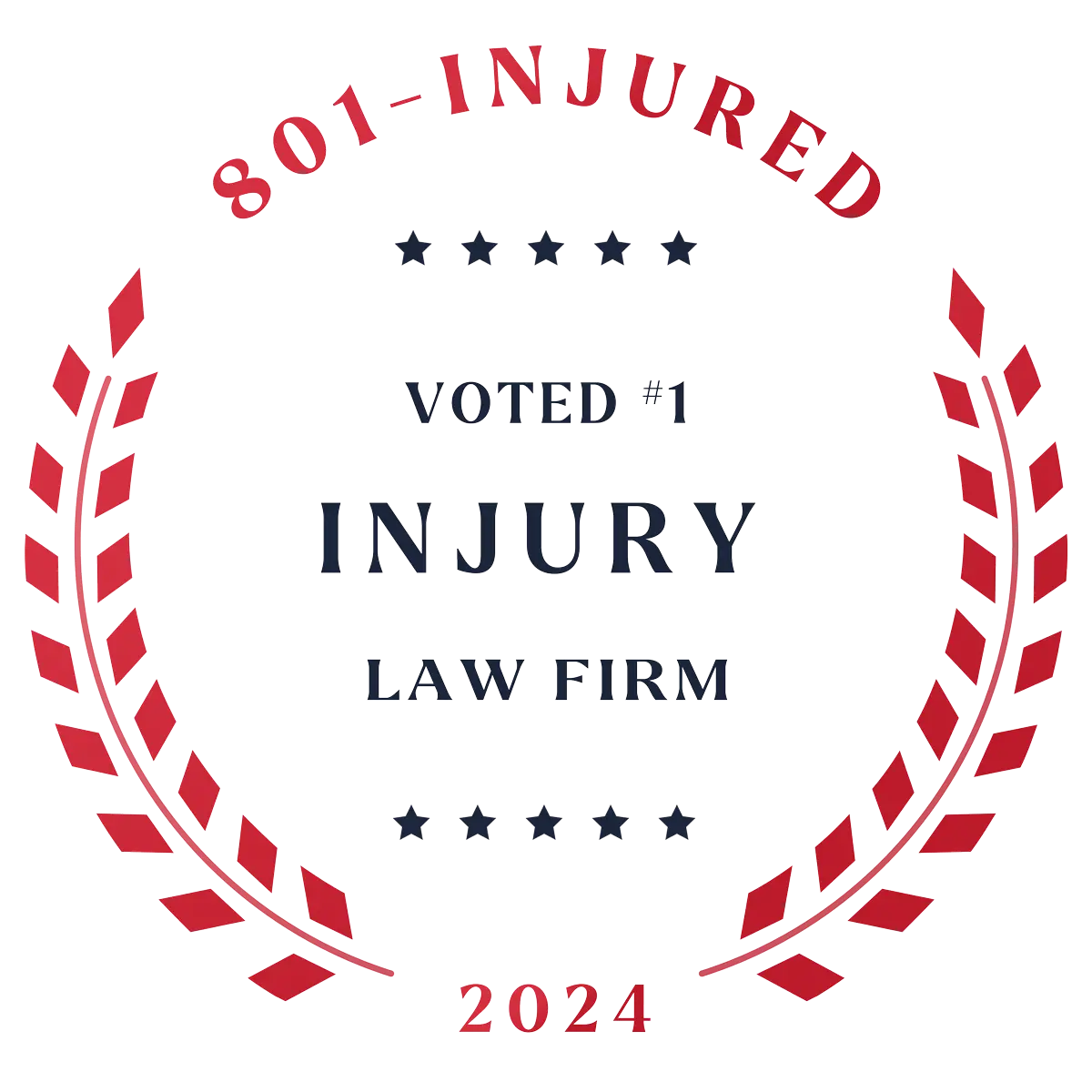Taking too long? Close loading screen.

In an accident? Get paid what you deserve.
Get a free case evaluation and unleash the power of Utah's top injury law firm.
you pay nothing until we win
801-INJURED attorneys Experienced winning against...






"Been in an accident? You could be entitled to more than you think... but only with an aggressive, successful lawyer by your side. At 801-INJURED we fight to win. With over 15 years of experience, our track-record speaks for itself. If you've been injured, contact us NOW! The longer you wait, the lower your chance to get what you deserve."

Mike Green, J.D., LLM
Founding Attorney
MILLIONS won for accident victims...
Don't hesitate! If you've been injured in an accident, it's time to speak with an attorney NOW. You have nothing to lose, and everything to gain.
You pay nothing until we win
No court. No hassles.
Get every penny you deserve

10 minutes is all it takes to know if we will win. 

"Thought I could brush off my accident. Man was I wrong. 801-INJURED helped me see the big picture...and got me a big payout. 8x more than insurance was offering. Thank you!"

Omar: $100k settlement
Better lawyers. Bigger payouts. Guaranteed.
$1.6M
Major Accident
Insurance company offered 30K. 801-INJURED won $1.6 MILLION instead.
Insurance offered...
We Won...
$40K
Car Accident Payout
Insurance offered 7K. 801-INJURED seized $40,000 instead.
Insurance offered...
We Won...
$100K
Truck Accident Payout
Insurance offered 8k. 801-INJURED made them cough up $100,000 instead.
Insurance offered...
We Won...
Award-winning and consistently 5-star rated... the attorneys at 801-INJURED have collected MILLIONS for clients. Don't settle, contact us today.
You pay nothing until we win

3 reasons 801-INJURED is the best law firm to represent you.

We get you MAXIMUM compensation for your injury.
Why settle with a mediocre lawyer? You need a lion, not a pencil-pusher. Our personal injury attorneys always fight for the biggest payout possible — that’s our pledge to you.

You pay NOTHING out of pocket.
We are relentless in your recovery. That means no hidden fees. That means no out-of-pocket costs. And that means you pay NOTHING until we win the compensation you deserve.

We win over 99% of injury cases.
Our track-record speaks for itself. 801-INJURED wins over 99% of cases. When you choose us, you can be completely confident that you'll get the compensation you deserve.
People LOVE working with 801-INJURED...
More one-on-one time with attorney
Staff has significant trial experience
Every case handled uniquely
Mike Green former special deputy DA
Mike Green former assistant to attorney general
Mike Green formerly in the US Army & D1 athlete
Your crash. Your cash... fast.
801-INJURED voted #1 personal injury law firm in Utah.
801 Injured is home to some of Utah's top personal injury attorneys. Award-winning and consistently 5-star rated... the attorneys at 801-INJURED have collected MILLIONS for accident victims like you.

Maxed out payouts
Get cash fast
Award-winning
No court

"Got a low offer from the insurance company that felt like a slap in the face. 801-INJURED said NO, got me 10x more money. Definitely chat with 801-INJURED if you're hurt."

Miranda: $1.6M settlement
Take your time and notice the 801-INJURED advantage.
 |
Law Firm #1 | Law Firm #2 | |
|---|---|---|---|
| Maxed out payouts | |||
| Zero out-of-pocket costs | |||
| 5-star lawyers | |||
| Rapid results | |||
| No court | |||
| 99% win rate | |||
| Elite service | |||
| Honest & transparent | |||
| Injury law ONLY | |||
| Award-winning |
Frequent Questions...
First you need to ensure everyone's safety. Second you need to call the police. From there you can start to gather evidence including photos and witness information. Finally, it's time to contact a top Draper auto accident attorney. A 5-star attorney will ensure you get the the compensation you deserve.
How long do I have to file a personal injury claim in Draper Utah after a car accident?
In Draper Utah, the statute of limitations for most personal injury cases is four years, meaning that any suits filed after this point will not be considered legally valid. It's crucial to consult with a auto accident attorney promptly to ensure you don't miss this deadline.
What compensation can I receive for my injuries and damages in Draper Utah?
Compensation can include medical expenses, lost wages, property damage, pain and suffering, and possibly punitive damages. The exact amount depends on the specifics of your case, including the severity of your injuries and the impact on your life. If you've been injured in an auto accident in Draper Utah you should reach out to a top attorney ASAP.
Do I need a lawyer to file a auto accident injury claim in Draper Utah?
While you can file a claim on your own, having an experienced auto accident injury lawyer increases your chances of receiving fair compensation. A top lawyer can navigate the legal complexities, negotiate with insurance companies, and represent you in court if necessary.
Legal Legends have a No Fee Guarantee, meaning you don't pay any upfront fees. The lawyer's fee is a percentage of the settlement or court award, usually around 25%. If they don't win your case, you pay nothing. There's nothing to lose, and everything to gain.
What if the other driver is uninsured or underinsured in Draper?
If the other driver lacks sufficient insurance, you may still recover compensation through your own uninsured/underinsured motorist coverage, if you have it. A lawyer can help identify all possible sources of compensation in such cases.
How long will it take to resolve my auto accident case in Draper Utah?
With a 5-star Legal Legends attorney most cases get settled within a few months. You can expect your maxed out payout quick. If you've been in an auto accident in Draper Utah, you need to unleash the power of Draper Utah's most successful and aggressive auto accident attorneys.
What if I was partially at fault for the auto accident in Draper?
Even if you were partially at fault for your auto accident in Draper Utah, you might still be able to recover compensation. A Legal Legend approved attorney can help assess your case and get the maxed out payout you deserve.
— Talk with a 5-star attorney —
10 minutes is all it takes to know if we will win.
You pay nothing until we win
2024 801injured.com - all rights reserved. Marketing by 